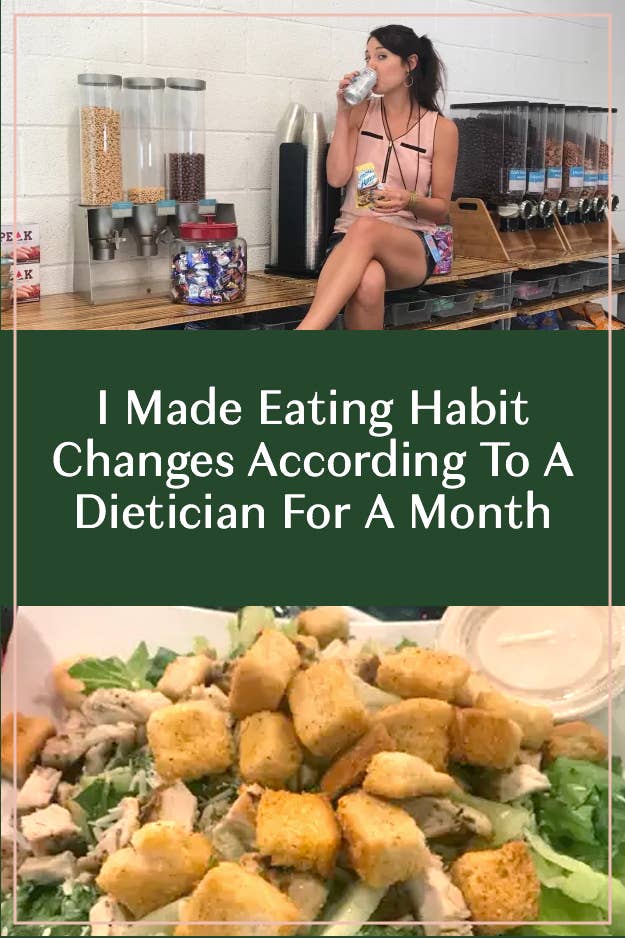
Hi, I'm Krista and I like food.
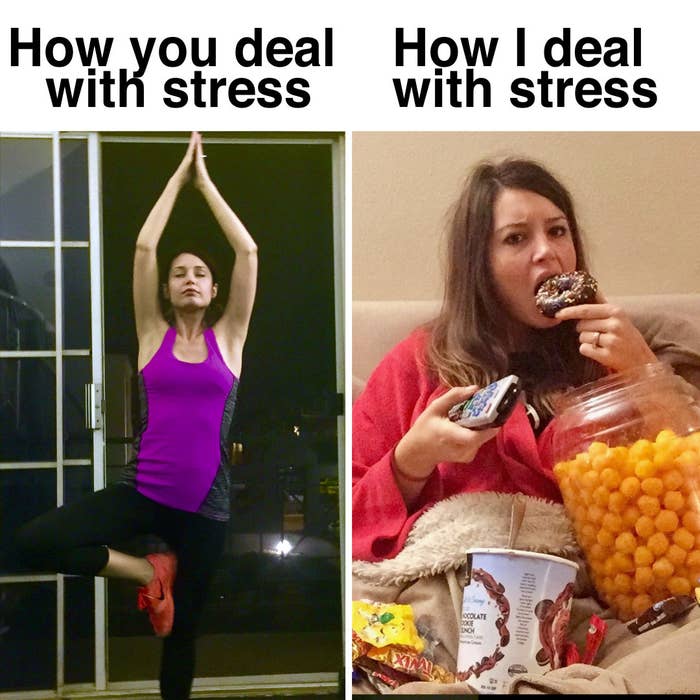
And while I am pretty good about exercising, I am not so good at eating well. Like when I do food challenges and eat a week's worth of shrimp in one sitting.
Mainly, I wanted to talk to a dietician to FEEL better. All day at work I’m tempted by snacks and I down who knows how many Diet Cokes by six pm. I come home feeling bloated and tired a lot.
I know I should eat fruits and veggies and protein, but I struggle with portion control – like exactly how many calories do I need per day? What is good fat and what is bad fat? Normally I skip breakfast, so I consume most of my calories at night. I don't drink enough water, I eat too much sugar. I really just want to press a reset button.
So, I reached out to expert Keri Gans who is an RDN, NYC-based nutritionist, certified yoga teacher and author of The Small Change Diet.
Before we began the month-long journey, Keri wanted me to keep an honest food journal for one week. This made me very nervous because, in addition to the free meals, beverages, and snacks I consume all day at work, there's Tasty.
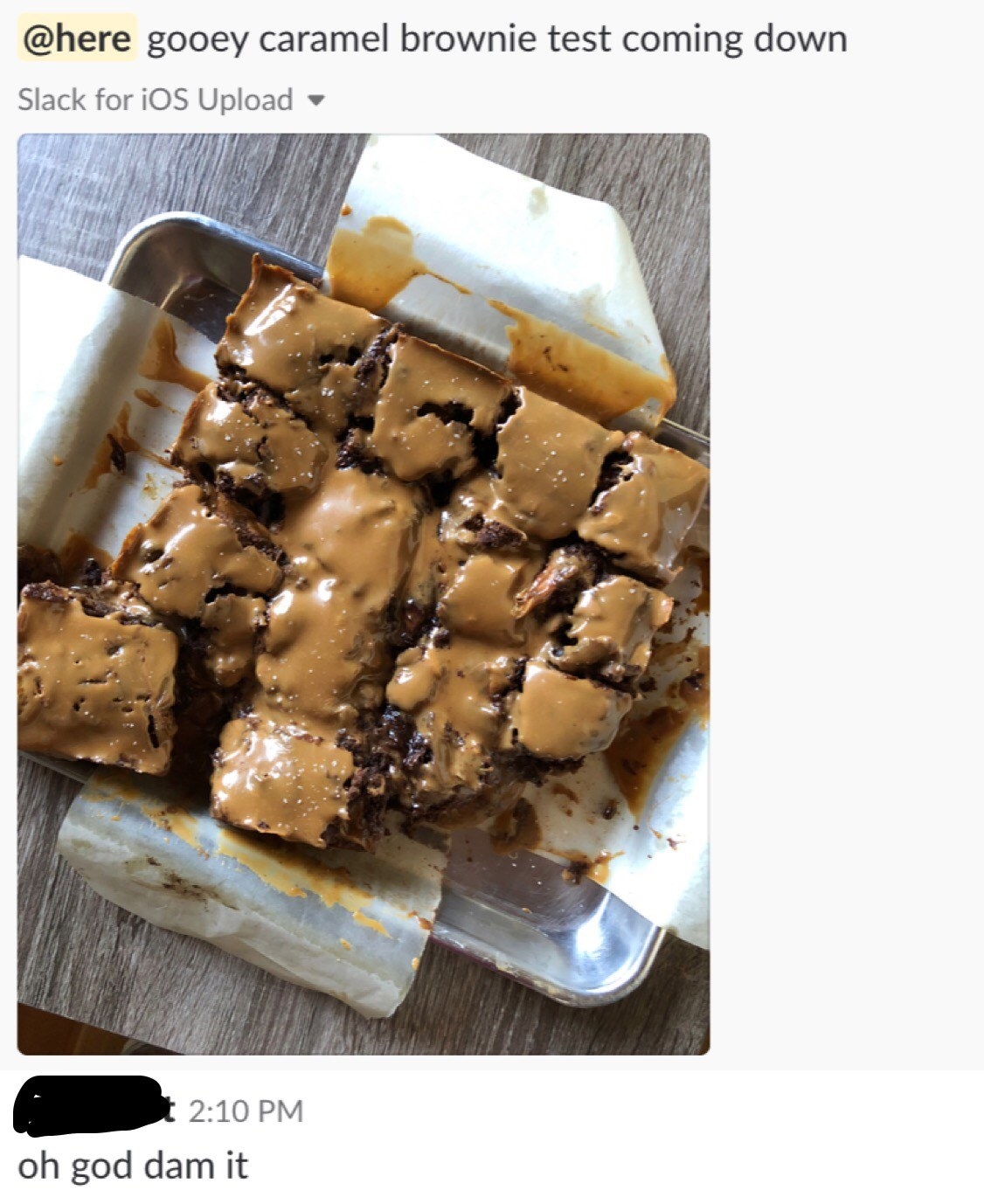
But she wanted to know exactly what I was putting into my body and at what times so she could better help me – and see my problem areas.
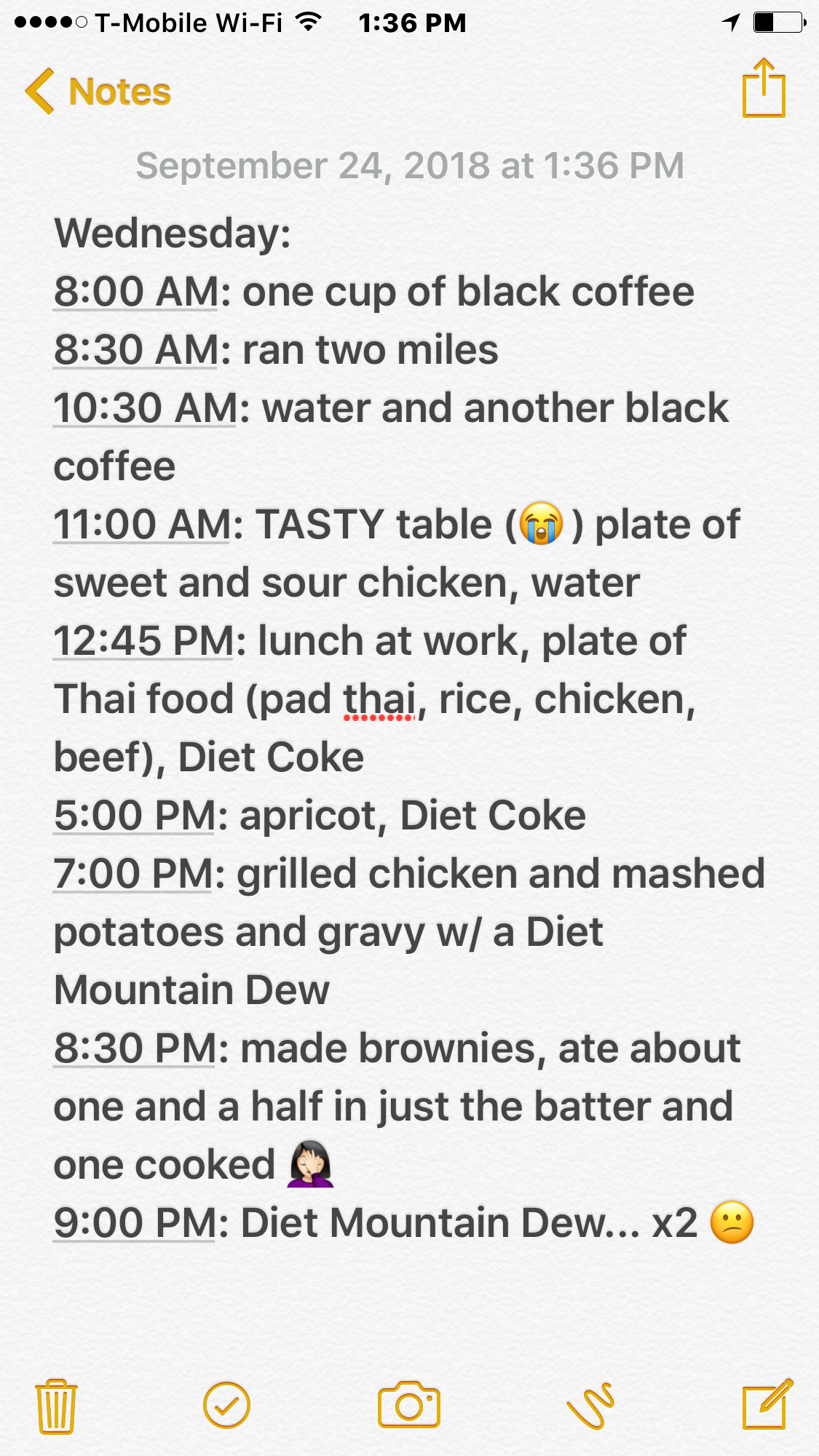
And this is what my typical lunch plate looks like. 🙈
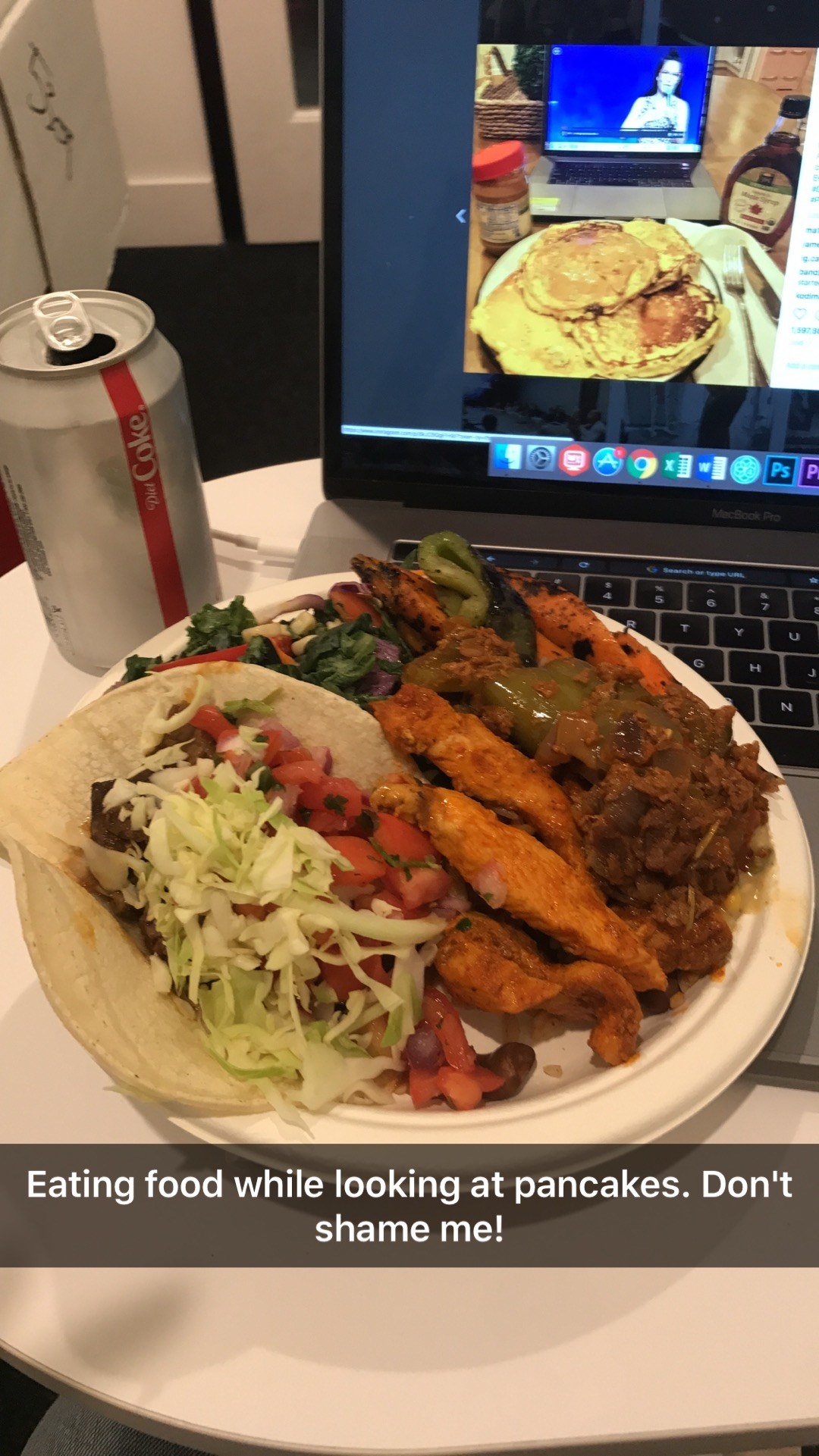
After looking over my eating habits, Keri quickly made some ground rules for the month.
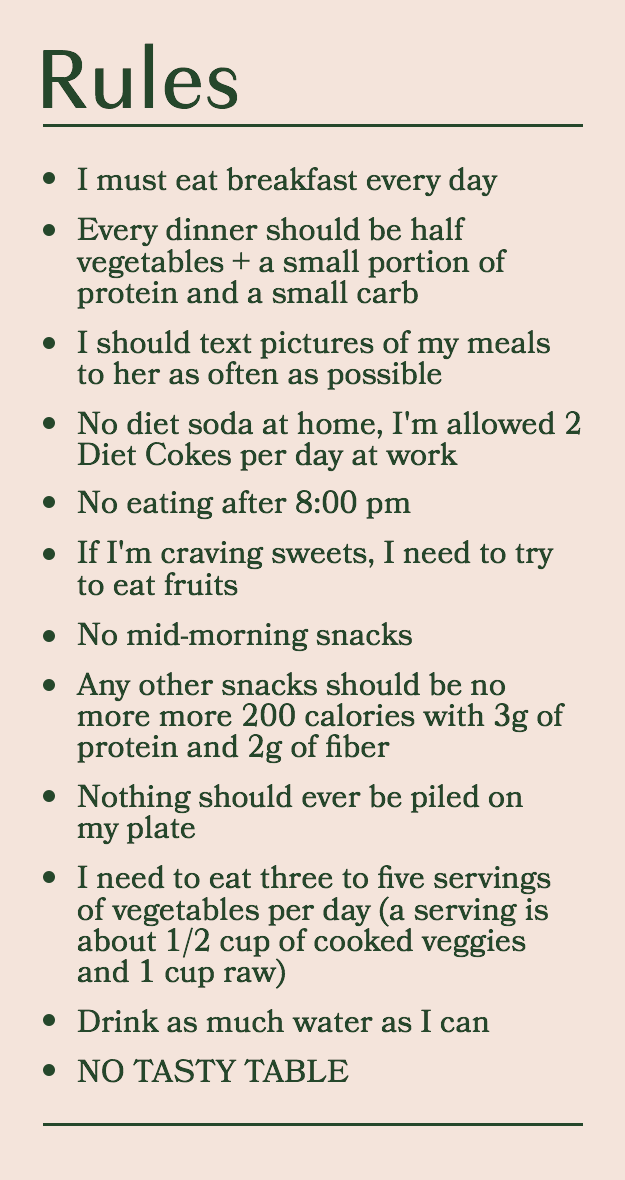
When I asked Keri how many calories I should have per day, she simply said, "I never give calories amounts or grams since I don't want clients to have to do daily math problems! It’s all about the portions and learning what a well-balanced plate should look like. If I had to give you a calorie amount, it would probably be 1600-1800, but that number can vary, depending on daily activity. A good rule of thumb is to have 20% protein, 25-30% fat, and 50-55% carbs in an entire day."
Keri said to also pay attention to added sugars. She said, "Typically a product high in added sugars is low in nutrition. According to the USDA, no more than 10% of your total calories per day should come from added sugar."



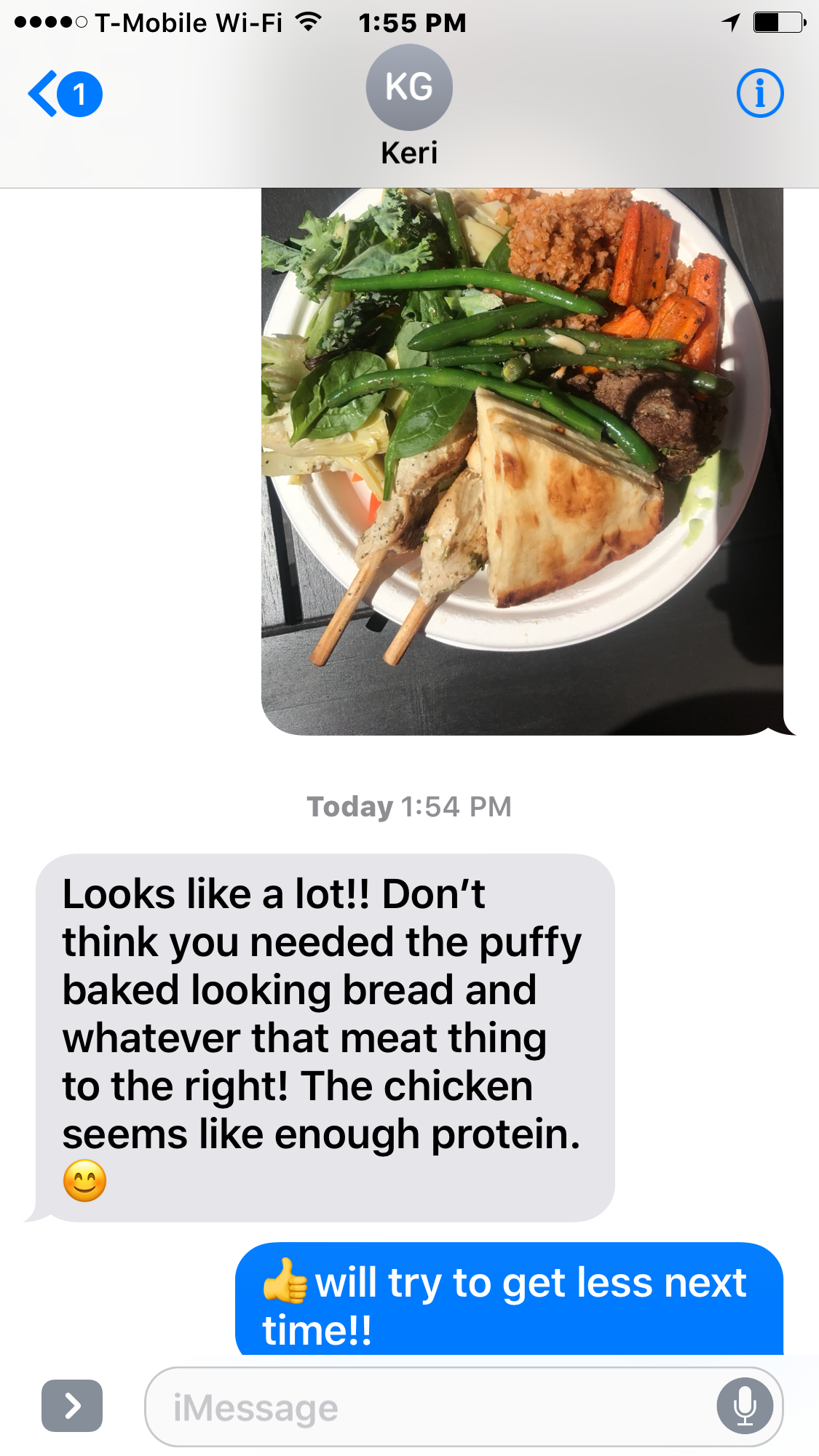
It became more and more apparent that restaurants ALWAYS over serve you. I knew this already, but when you gotta send pics to your dietician you really start thinking about what you do need and don't need.
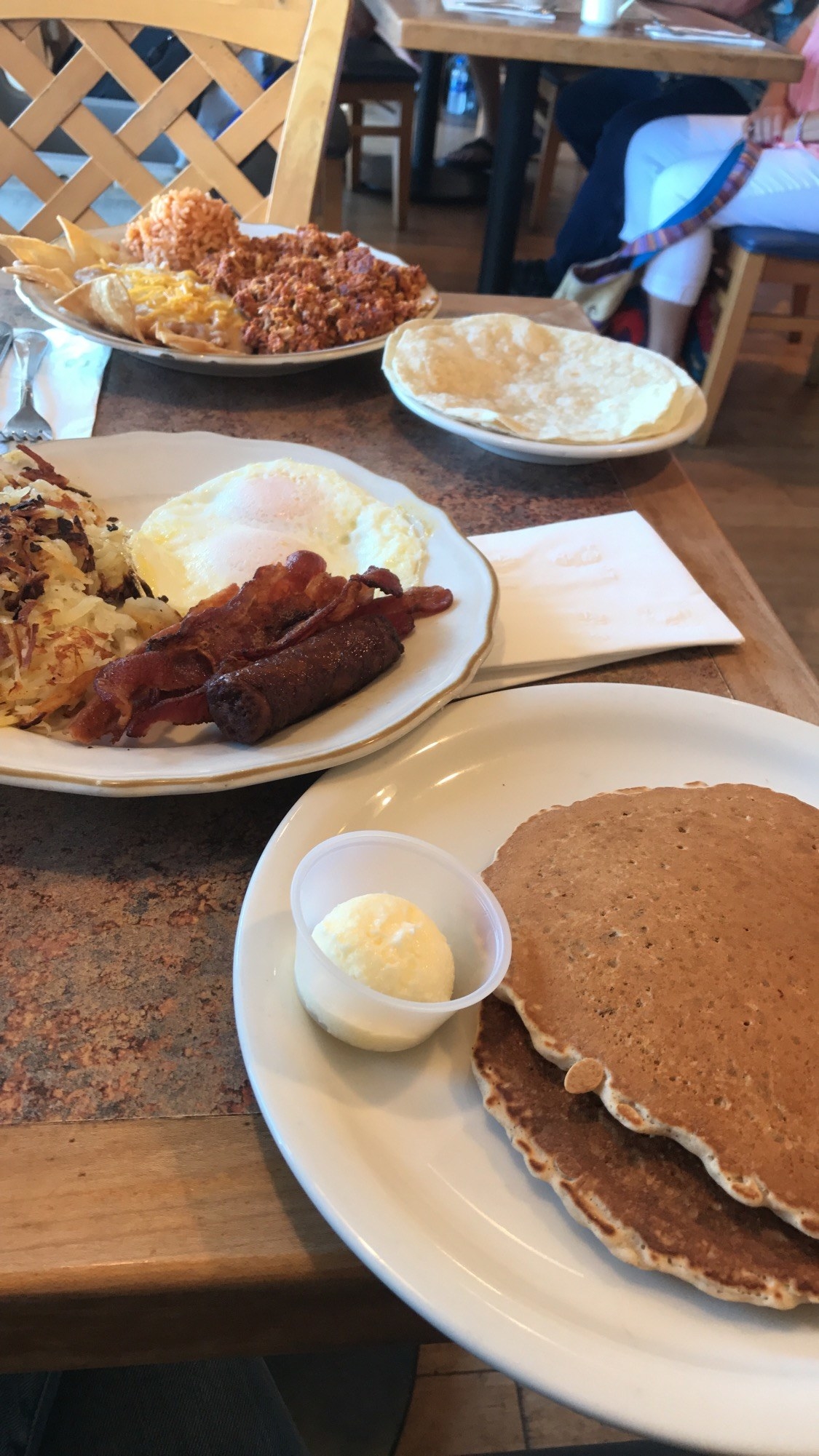

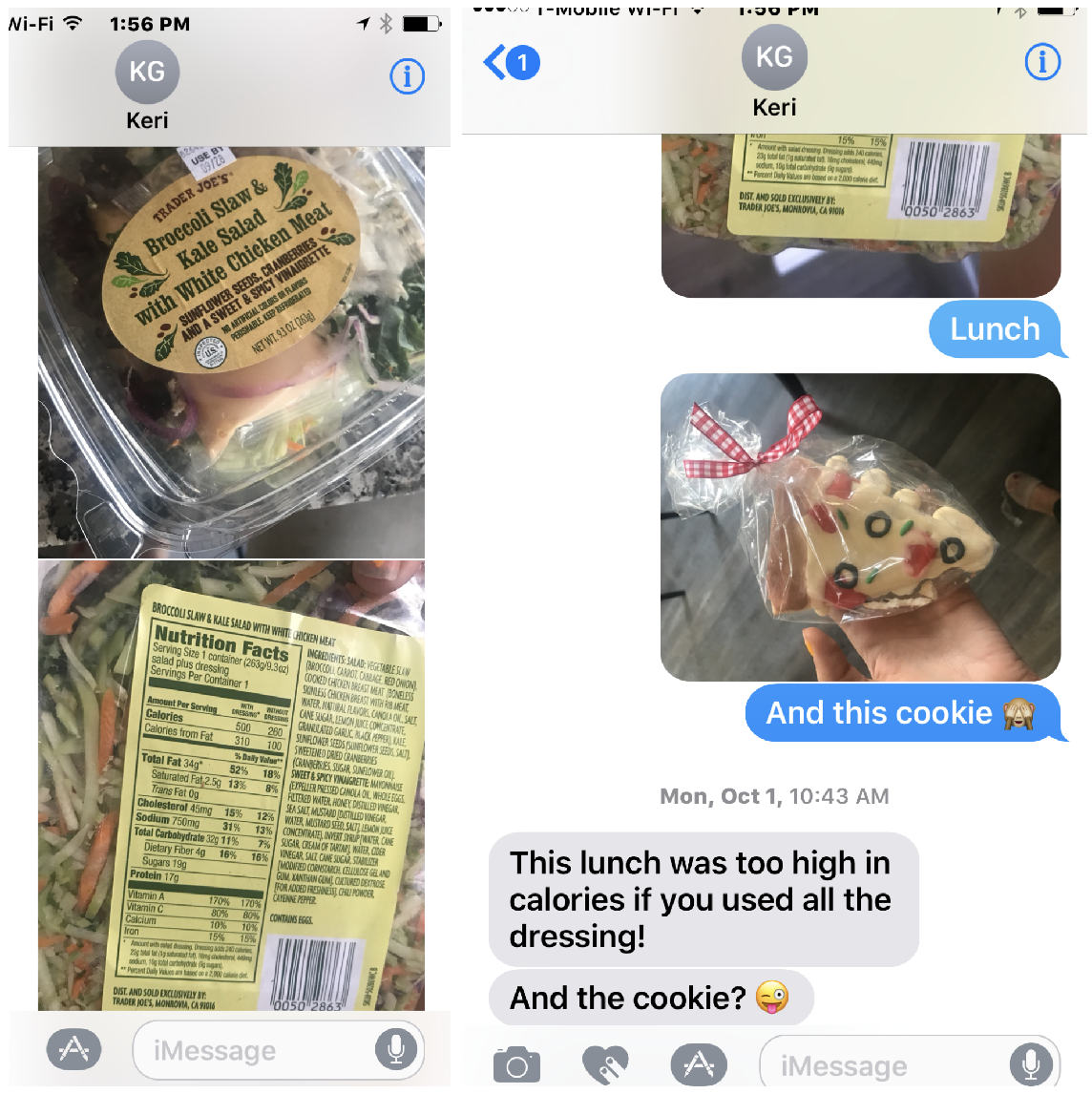
I wasn't supposed to be eating late, but I have a family and there are snacks to be had, so at times when I really want to munch, I turned to baby carrots.
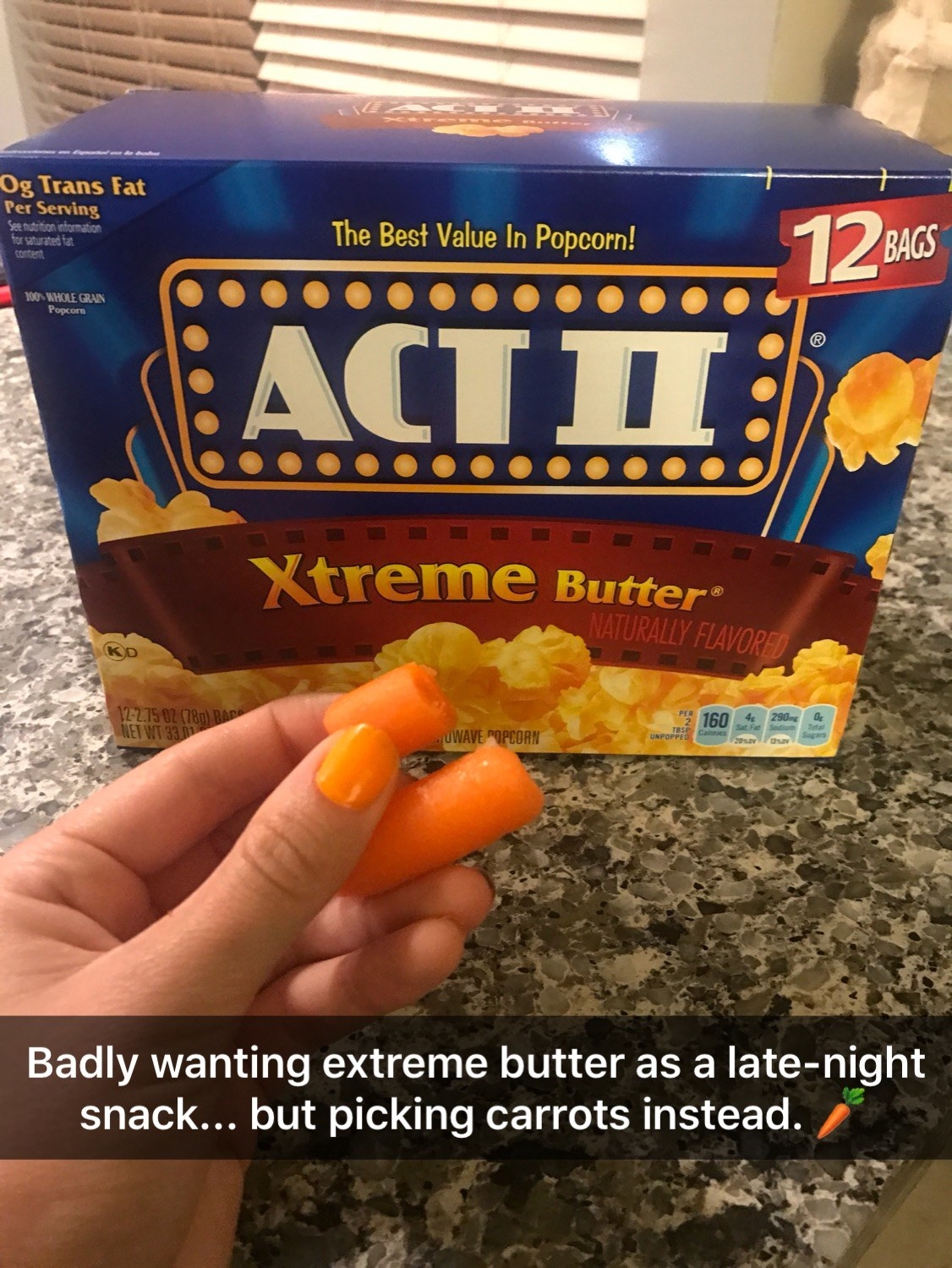

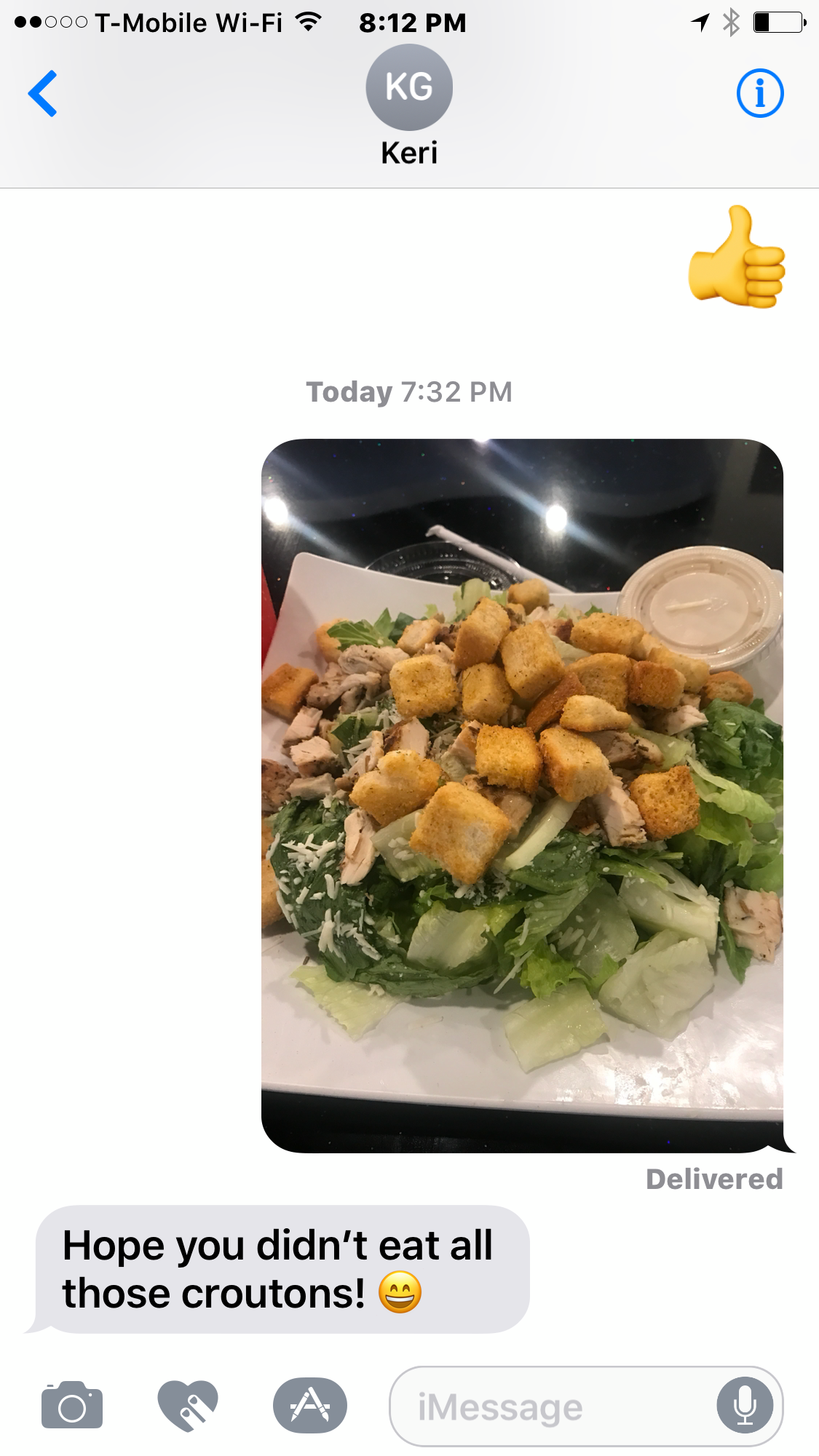
Once I started looking at things as "habits" and not "cravings," it was easier to say no to snacks I knew were bad for me.
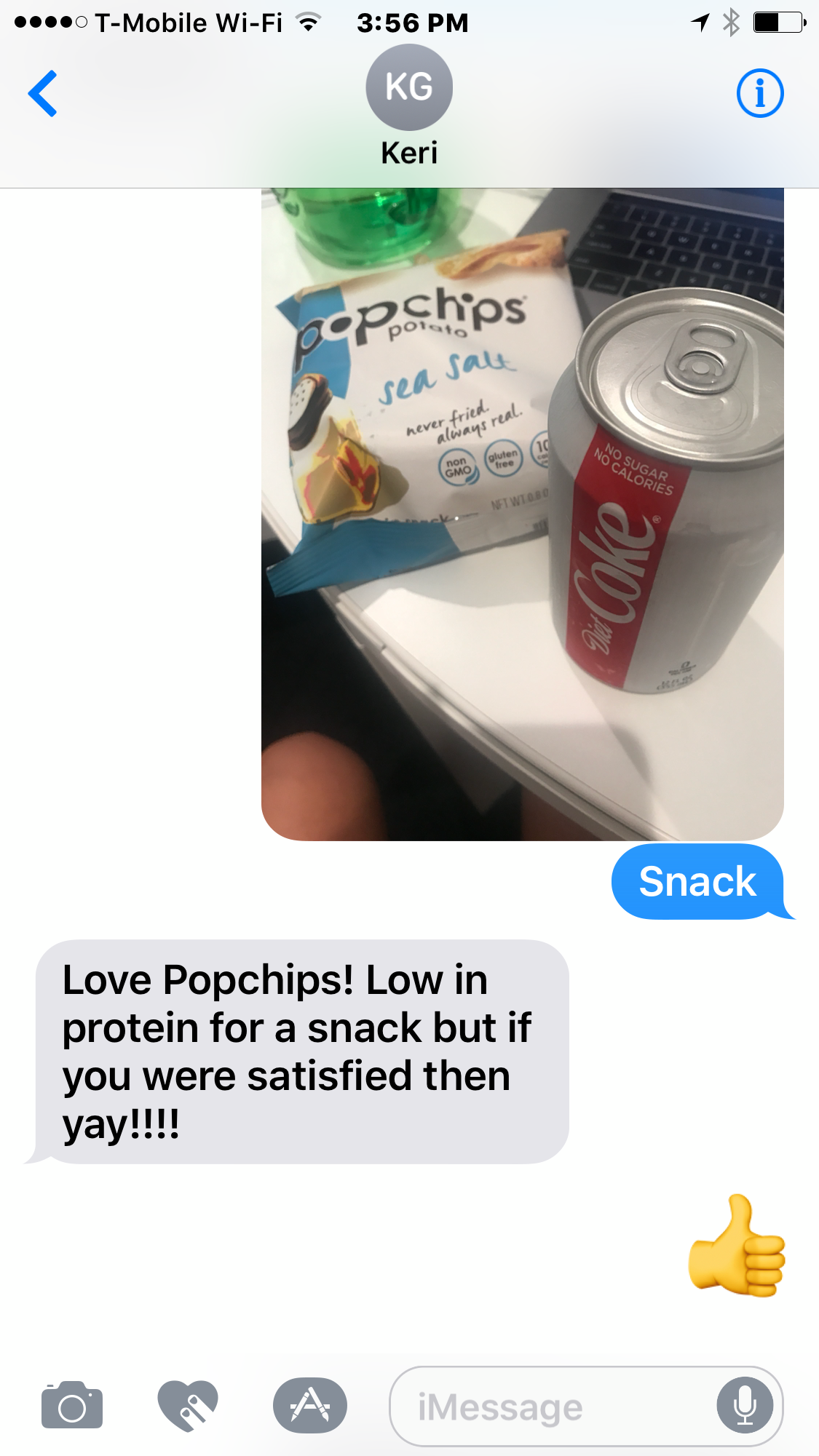

Even just making a few minor adjustments to your eating routine can make a huge difference. For instance, just adding breakfast made a huge difference in my not over-eating lunch or late-night snacks. I also learned how important veggies are every single day – and they fill you up, so now I make it a habit to eat as many as I can. I don't think after just one month you're automatically eating as healthy as you can, it's a process. A process that includes cutting bad habits and learning that you shouldn't skip meals. It wasn't always "fun," but I think it's good to be aware of the nutrition facts, such as how much sugar you're putting into your body. Overall, I would say I honestly felt less bloated (even when it was that time of the month) and I as I said before, I felt more "in control" of my food choices.
